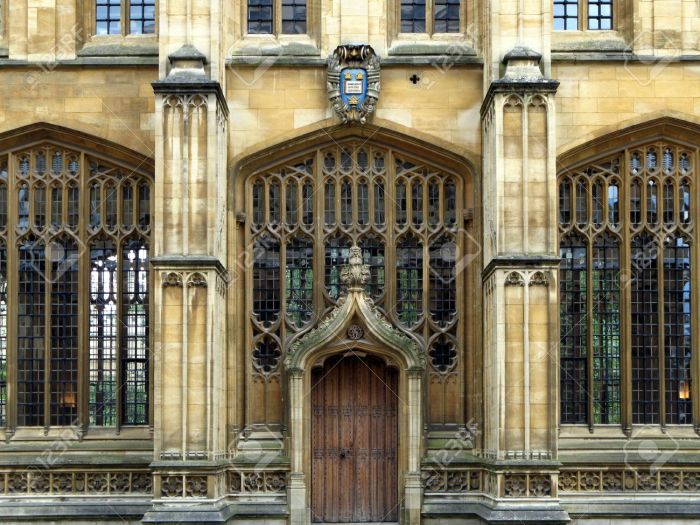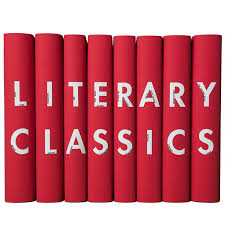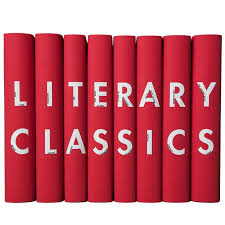

Etymologically, the word classics is derived from the Latin adjective classicus, meaning “belonging to the highest class of citizens.”
As a student of Classics, UI, when people outside of this University of Ibadan, Facuty of Arts community in a way ask “What course do you study?” The reply goes more than saying something like “Medicine, English, Psychology, Islamic Studies, Yoruba…” or any other popular course. After one might have possibly said “Classics” hence these queries: “Is that a course?” “Classics or what did you say?” “Is it about music?” “What is it about?” “Did you choose the course?” “What can you do with it?” “It must be a new course?” Some even go like “It must be a dumping ground for students who didn’t make up”… And so on and so forth.
So oft times educating the ignorant about my course of study Classics, takes understanding, patience and tolerance.
So this is how it goes: I usually start from the rear, “Classics is not a new course in Nigeria, it is as old as the earliest university education in Nigeria” it is one of the less than 10 courses the then University College of London now the Premier University in Nigeria, University of Ibadan started with in 1948.
In my opinion I do tell people “It is the best legacy the White ever left in a colony or protectorate” in the words of
Niccolo Machiavelli “Whoever wishes to foresee the future must consult the past; for human events ever resemble those of preceding times. This arises from the fact that they are produced by men who ever have been, and ever shall be… and thus they necessarily have the same results.” And knowing the history of one’s master is really a privilege and a possible guide to greatness. It is such a brilliant history I must say. Hence in Classics we study the history of the Mediterranean World; the history of our colonial masters; the history of weakness and strength; the history of the superior devouring the minor; the history of first past the past the post; the history of winner takes all; the history of subjugation; the history of politics and power; the history of religion, rebellion, racism; the history of coincidence; the history of intention; Hmmm, I must say the history of purpose, passion, and patriotism… the history of nothing lasts forever!
Then I possibly go to the foremost question “is that a course?” “Yes, a course of study at the University of Ibadan, a privilege the University of Ghana only among other Universities in West Africa shares with her”
“Classics or what did you say?” When someone asks this, it is an evident he is very lost than missing and one needs confidence to relate to such about the reality of Classics being a course of study, obtainable in a Nigerian university.
“Is it about music?” It is good to know that some Nigerians, especially among the youth, possibly one out of hundred has a knowledge of Classical music. Hence the query “Is it about music?” I go like well not outrightly without music but not the idea of classical music I supposed you know. But Classics will help you understand the likely origin of music and some hitherto unsophisticated musical instrument with their essence.
If peradventure you had some who admitted you’re studying a real course upon mention, then, such a person may ask something like “What is it about?” So I go like “Classics is the basis of any course you can ever imagine, especially all the humanities, it is the rubric upon which our modern world is built”. Classics has different vertices with many other faculty of studies. Classics is Historical, Political, Athletic, Legal, Musical, Religious, Economical, Philosophical, Technical, Comological, Ecological, Aeronautical, Mythical, Scientific, Administrative, Sociological… Time will not suffice to dilate these connections here. To this effect another topic “The Influence of Classics in other Faculties” has been dedicated to dealing with this aspect.
The nest question is where many Classics’ students differ, because if some had had their ways before setting in, they would have backed out. And the fact that Classics is not for lazy people makes many angry upon realization of how serious it is to have good grades. When asked the question “Did you choose the course?” Here, I answer with an air of importance, I give a bold “YES”. Basically, before I came to the University of Ibadan to study Classics, I had interest in three things which I wished to study altogether: “Philosophy, Religion and Communication”. Back then I either go online to search or lay hands on available books to find a way out. So I got hold of a JAMB brochure (Joint Admission and Matriculation Board) and for the first time in my life aside my knowledge of classical music, I came across Classics as a course of study. I without delay took to the net and read other blogs about Classics and where else it could be studied in the world, what I could do with it… Among other personal inquiries.
My findings were interesting: Oxford has the biggest Classics department in the world, Classics makes one DYNAMIC!, you get to learn Greek and/or Latin. The fact that I would not be employed because I know much of Latin, Greek or the Mediterranean world or any other depth in the field of Classics, but because DYNAMISM in knowledge anywhere was sufficient for me. Hence the question “What can you do with it?” was unraveled, because what many organisation look out for in prospective workers in DYNAMISM in knowledge. In addition to that during our departmental orientation programme this question was expatiated comprehensively. And going by the impacts and influence of some old Classicists in Nigeria, who were once students of this great university, I had no doubt of the fortune entrenched in Classics.
Some even go like “It must be a dumping ground for students who didn’t make up!”. Well, that may not be completely untrue, it is a matter of realizing that out of 30 students in a class here in the department of Classics less than half chose the course. This I suppose reveals the uncommon coincidence of chance and fortune.
Nevertheless, theoretically, Classics (also Classical Studies) is the study of the languages, literature, laws, philosophy, history, art, archaeology and other material culture of Ancient Greece and Ancient Rome; especially during Classical Antiquity (ca. BCE 600 – AD 600).
Oxford University sees it similarly different “Classics is the study of the languages, culture, history and thought of the civilisations of ancient Greece and Rome. It is one of the most varied and interdisciplinary of all subjects. Featuring a wide range of options, the course offers the opportunity to study literature (epic, drama, historical writing, and much else), the history and archaeology of the Greek and Roman Mediterranean, philosophy (both ancient and modern), and linguistics.”
You can join us, Classics at the University of Ibadan is offered both at the undergraduate and postgraduate level.
I’m a Classicist in the making.
Kariola Mustapha,
Student, Dept of Classics,
Faculty of Arts,
University of Ibadan.
mustaphakariola@gmail.com
